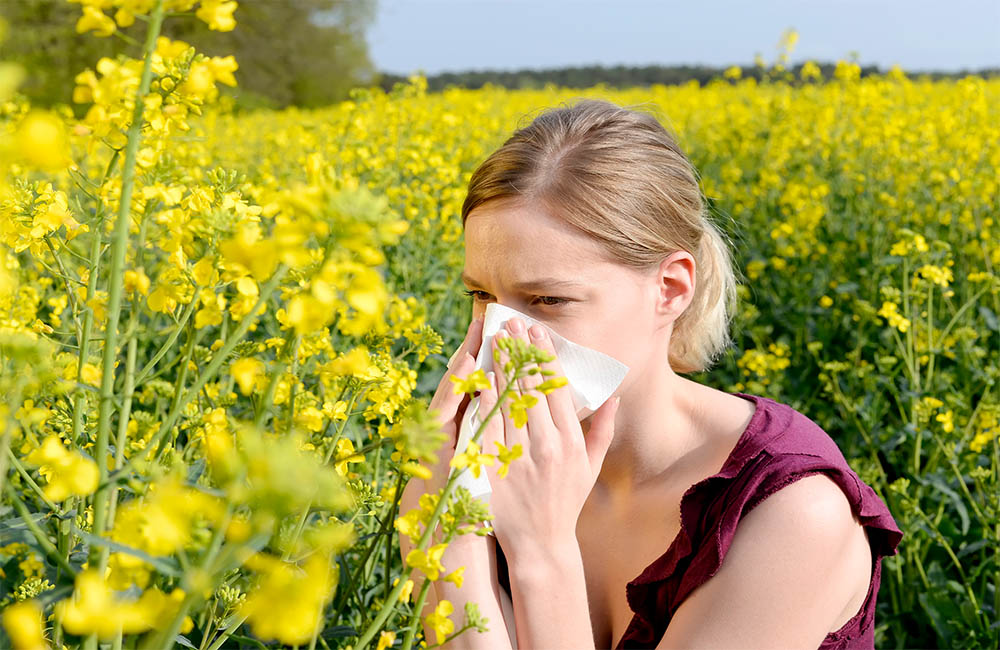
How to cope with Hay Fever
How to cope with Hay Fever. We all know someone who suffers from Hay Fever and for most it can be a living nightmare. Symptoms of seasonal allergic rhinitis usually occur in the spring and summertime.
What causes Hay Fever?
They are usually caused by allergic sensitivity to airborne mould spores or to pollens from cut grass, trees and also weeds.
From March and September, especially when it is humid and windy, Hey Fever has a tendency to strike. This is when the pollen counts are at their highest.
What are the most common symptoms of hay fever ?
- Lots of sneezing and irritable coughing
- It cause you nose to run
- This can lead to having itchy red or watery eyes
- It may cause unwanted itches to your throat, mouth, nose and ears
- You loose the sense of smell
- experience pain to your temples and forehead
- You start to get headaches and earache
- Leaves you fatigued and a sense of feeling tired
- If you are asthmatic you may also experience a tight feeling to the chest. You may also find yourself short of breath or become wheezy and cough prone.
Thankfully, Hay fever only ever lasts for a few weeks or months. Treating Hay fever is a lot easier nowadays because we have more understanding to its cause.
How to cope with Hay Fever
There are simple ways in how you can treat yourself. We have put together a few do’s and don’ts to help you live with this uncomfortable ailment.
Currently there are no cures for hay fever and you cannot prevent it. Here are a few things to ease your symptoms when the pollen count is high
How to treat hay fever yourself
- You can apply Vaseline to your nostrils to trap pollen
- Wear wraparound sunglasses which can stop the pollen getting into your eyes
- Make sure to shower and change your clothes frequently if you have been outside. This washes away the pollen
- Try and stay indoors when there is a high pollen count
- Shut all windows and doors to shut out the pollen
- Clean the house frequently and get the hoover out. Fit your vacuum cleaner with a special HEPA filter.
- Dust areas with a damp cloth
- If you do lots of driving, buy a pollen filter for the air vents in your car and a
A few things to avoid
- Don’t attempt to cut or be around fresh cut grass
- Try not to spend too much time outside. This will expose you to pollen
- Do not keep or be around fresh flowers in your home or work.
- Stop smoking or avoid being around smokers as this will agitates you makes your symptoms worse
- Please don’t hang out your clothes on a washing line. They can catch pollen
- Avoid being around animals or pet as they can carry pollen.
Seek help from a pharmacist
If your Hay Fever is unbearable like most forms are, Speak to your pharmacist. They can give sound advice and suggest on the best form of treatments for you.
The most common treatments are antihistamine drops, tablets or nasal sprays to help ease itching and watery eyes and sneezing. Make sure to always consult your GP or and expert before taking any type of medicine or supplements.
How to cope with Hay Fever
